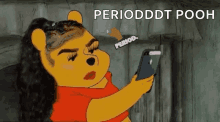Author Kaitlyn Murray

When I first came across the idea of human animal hybrids, I couldn’t help but roll my eyes. The concept of merging human and animal traits might sound like something straight out of a sci-fi movie, but for me, it raises some serious red flags. As a Black woman navigating this world, I’ve had my share of experiences that make me strongly oppose any sort of animal-human hybridization. So, let’s break down why I think this is a hard pass.
Historical Context Matters
First and foremost, let’s talk about history. For centuries, Black people have been dehumanized and compared to animals. From the days of slavery, where our worth was measured by our labor rather than our humanity, to modern-day stereotypes exemplified by incidents like the H&M scandal, these narratives have often drawn parallels between us and creatures like monkeys and apes. It’s been a painful journey just to claim our humanity in a world that frequently undermines it.
So, when the idea of hybridizing with animals comes up, it feels like a slap in the face. Why on earth would I want to give anyone the chance to further blur those lines? My ancestors spent too long fighting for my rights and dignity, just to entertain a notion that could potentially strip away the hard-fought recognition of my humanity. Mixing with another species is not just a quirky scientific experiment; it opens the door for even more dehumanization. It could give folks a reason to say, “See? You’re not that different from animals.” And that’s a slippery slope I’m not willing to venture down.
The Trap of Hybridization
Imagine for a second what it would mean to hybridize with another animal. Sure, the idea might seem fun or intriguing at first. Maybe you’d gain some enhanced abilities—like the strength of a gorilla or the agility of a cat. But at what cost? How much of your own humanity would you be willing to sacrifice for these traits? Would you lose part of your ability to think critically, to feel deeply, or to connect with others on a human level?
It’s easy to fantasize about having superpowers, but let’s remember: those powers often come with consequences. The moment you start to blur the lines between human and animal, you risk losing the very essence of what it means to be human. Would I want to wake up one day and find that my rights as a person have been diminished because I’ve been hybridized? Excuse my language, but H-E-Double Hockey Sticks, NO!
Cultural Identity and the Human Experience
Culturally, Black people have a rich history that is deeply rooted in our humanity. Our stories, struggles, and triumphs have shaped who we are today. We’ve crafted a narrative that reflects resilience, strength, and dignity in the face of adversity. Now, imagine trying to reconcile that with the identity of a hybrid creature. What would that mean for our culture? How would we be perceived?
Let’s not forget about the infamous “three-fifths compromise,” a dark chapter in American history where enslaved Black individuals were counted as three-fifths of a person for legislative representation. And that was when we were normal flesh and bones—no additions! That compromise was a clear indication of how society viewed our humanity—or lack thereof. The thought of hybridization only complicates this further, as it could lead to a renewed sense of dehumanization. We’ve fought so hard to be seen as whole people, and the last thing we need is a scientific endeavor that could echo that three-fifths narrative. Why would I want to add more confusion to an already convoluted narrative?
Final Thoughts
At the end of the day, the idea of hybridizing with animals simply doesn’t resonate with me. I cherish my humanity and all the complexities that come with it. I am proud of who I am, and I refuse to entertain a concept that could potentially undermine that identity. The fight for our rights, dignity, and recognition is already too steep a hill to climb without adding more layers of complexity to our existence. As descendants of kings and queens, we embody a powerful identity as Black individuals. Why should we dilute our beautiful humanity in a world that is always pushing labels on us? Let’s defy those labels and stand Black, beautiful, and proud. Black is beautiful, and our beauty deserves to shine in all its glory—untouched. Period.

Works Cited:
(2024). Aw Hell Naw. Giphy.com. http://media.giphy.com/media/3o85xERD1TT5JKCIXS/giphy.gif
Johnston, M. (2022, February 7). Three-fifths compromise | United States history. Encyclopedia Britannica. https://www.britannica.com/topic/three-fifths-compromise
(2024). Tenor.com. https://media.tenor.com/uz5cL9eQnMkAAAAM/period-pooh-periods.gif
University, B. B., Melbourne. (2017, February 22). The uneasy truth about human-animal hybrids. Www.bbc.com. https://www.bbc.com/future/article/20170222-the-uneasy-truth-about-human-animal-hybrids
West, S. (2018, January 19). H&M faced backlash over its “monkey” sweatshirt ad. It isn’t the company’s only controversy. The Washington Post. https://www.washingtonpost.com/news/arts-and-entertainment/wp/2018/01/19/hm-faced-backlash-over-its-monkey-sweatshirt-ad-it-isnt-the-companys-only-controversy/
Published by